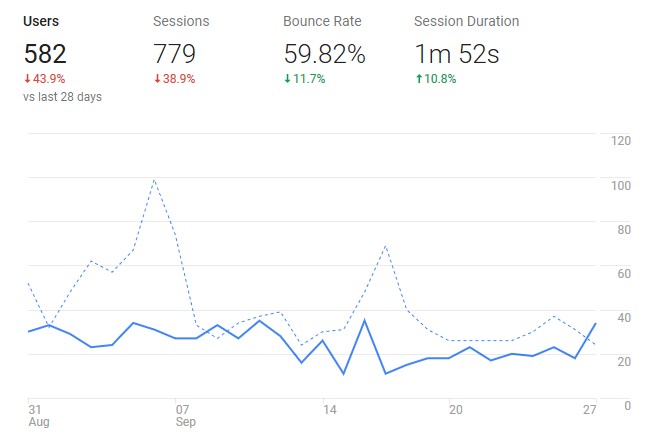How to reduce your visitor bounce rate and improve your SE rankings!
The other day, I was replying by email to a lady who had just purchased one of our websites; and she was asking me about our Search Engine Optimisation package, which we have designed for sites that are struggling to get found organically, (i.e. doesn't appear on search engines result pages). As she had a brand new domain, and a brand new website, the website had zero online presence.
I was explaining that a new website has to compete with not only the many websites of the potentially hundreds of self catering cottages in her region, but also against the many large websites that spend thousands of pounds a month to ensure that they appear for the most competitive phrases eg "self catering in the Lake District". This has caused a shift in how smaller website owners can get found by search engines; as they no longer have any hope at all for appearing for these top phrases.
Now to the point of this article; a high bounce rate occurs if a large portion of the web traffic going through to a website visits the landing page and exits immediately eg. when a user clicks a link, realizes it is not what they’re looking for and returns to the search results page to click on another link, this is known as pogo-sticking – bouncing around from page to results to page to results and so on. If this happens frequently for a search phrase bringing visitors through to your site, eventually Google will devalue the ranking for these phrases. The reason is simple; Google wants to ensure that the search results are relevant to what the searcher is looking for.
To cut a long story short, I was explaining how our SEO package can quickly secure a website a much higher chance of gaining visitors from organic searches by utilising long tail key phrases, eg if your accommodation is a cottage sleeping 6 in Derbyshire and allows dogs the search phrase we would be looking to optimise would be "Derbyshire dog friendly holiday cottage sleeping 6". This phrase has less competition, and as such we can get the website to be optimised quickly to get found for this phrase. The result is that anyone who searches for this on Google, clicks on your link and gets through to your website is not going to instantly bounce away because your site DOES offer exactly what the searcher was looking for. Google will see that the person has spent time on your website and is therefore going to rank your website higher for similar phrases going forward.

Example bounce rate
So to help your own website get a lower bounce rate, first of all take a look at your bounce rate (you will need to have Google Analytics) - see pic below and interpret whether you need to tighten up your on-page search engine optimisation with a long key tail phrase, or if you need to add extra engagement to your website, links through to internal pages, or buttons linking through to availability / booking etc.
If you have any questions about search engine optimisation, why not get in touch? Visit our contact page here
All the best,

